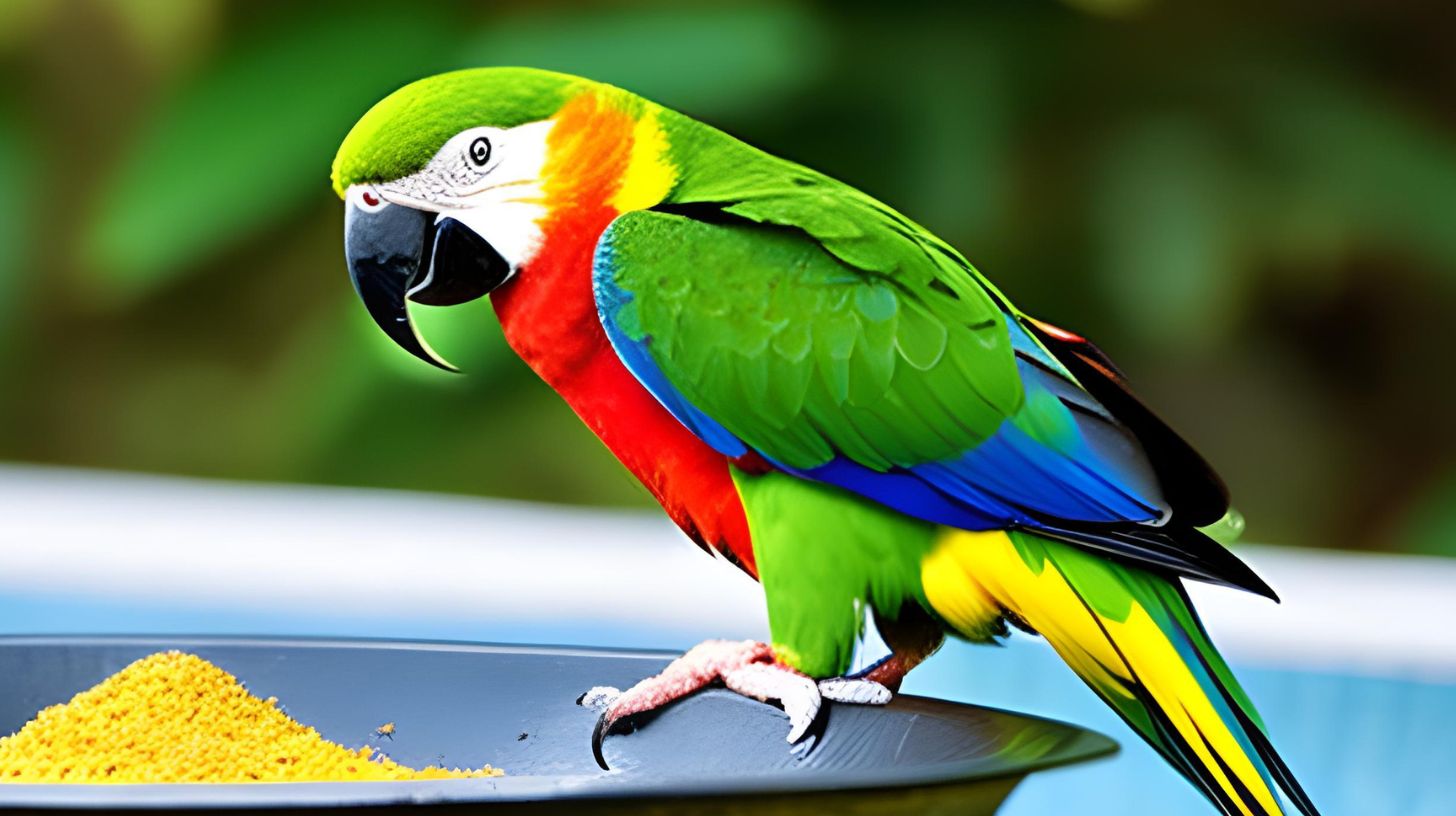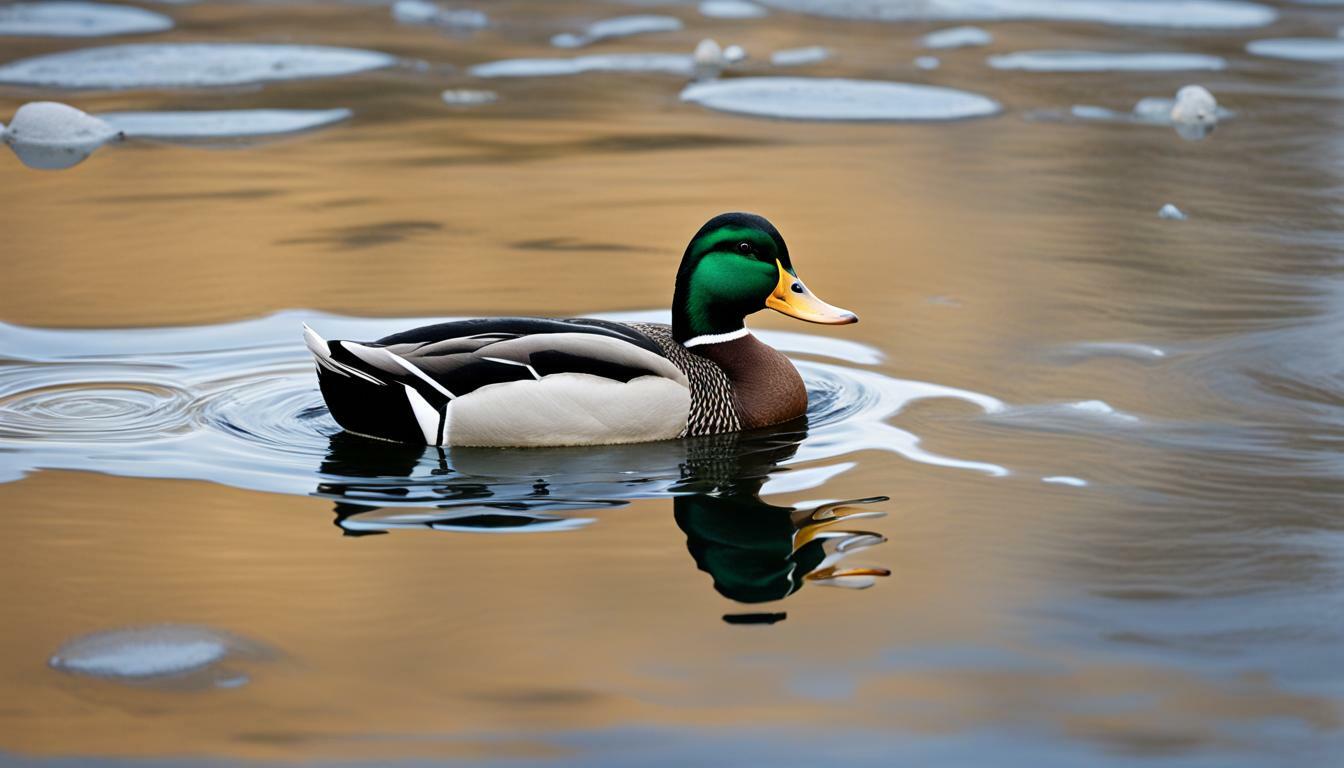Can Ducks Eat Mint Leaves and Plants?

Table of content:
Have you ever wondered if you can share some of that refreshing mint from your garden with your pet ducks? Mint is a popular herb known for its bright green leaves and signature refreshing fragrance and flavor. Both mint leaves and whole mint plants provide nutrients that ducks can benefit from. But is mint actually safe for ducks to eat? And how much mint can ducks have?
Is Mint Toxic to Ducks?
Many common herbs, veggies and plants growing in our gardens are toxic to dogs, cats and other pets if eaten in excess. So it’s understandable to be cautious before feeding mint to ducks.
The good news is that all varieties of mint are considered non-toxic for ducks. Neither the leaves nor stems of mint plants contain poisonous compounds or substances that can harm ducks.
Ducks do not appear to suffer from adverse effects or health issues when consuming moderate amounts of mint leaves, mint plants or mint flowers. Their digestive tract is able to tolerate the oils and plant compounds in mint that might negatively affect other animals.
With mint’s non-toxic status confirmed, let’s look specifically at whether ducks can eat mint leaves and whole mint plants.
Can Ducks Eat Mint Leaves?
Yes, ducks can safely eat mint leaves! Fresh or dried mint leaves make a tasty treat or supplement to a duck’s usual vegetable greens.
Ducks will enjoy nibbling on the tender young leaves of emerging mint plants in spring and early summer. Mature mint leaves later in season also make a refreshing snack.
The aromatic oils in mint leaves provide:
- Healthy nutrients – Vitamins A and C, manganese and iron
- Aid digestion – Mint may relax gastrointestinal muscles
- Antimicrobial effects – Oils can kill bacteria and microbes
- Anti-inflammatory properties – Soothe inflammatory digestive diseases
- Antioxidants – Reduce damage from free radicals
So mint leaves give ducks some extra nutrients, compounds that promote gut health, and enjoyable new flavors to discover. Just be sure to offer mint leaves in moderation.
Can Ducks Eat Whole Mint Plants?
Ducks can eat all parts of live mint plants including the leaves, stems, flowers and shallow roots. Whole mint plants provide ducks with:
- Fiber – From stems and roots to aid digestion
- Foraging enrichment – Allows natural foraging behaviors
- Gut microbiome diversity – More plant compounds and fibers
Above-ground parts of the mint plant including leaves, flowers and upper stems will likely be the most palatable. The woody lower stems and stringy roots are still edible, though ducks may prefer tastier leafy greens.
You can offer a few freshly picked mint stems with leaves attached. Or transplant a mint plant directly into a duck’s outdoor habitat. This allows ducks to graze naturally on the mint.
How Much Mint Can Ducks Eat?
Mint leaves and plants should make up a relatively small portion of a duck’s overall diet. Follow these tips when feeding mint to ducks:
- Start slowly initially – Watch for any signs of sensitivity
- Feed mint as an occasional treat, 2-3 times per week at most
- Mix in with other leafy greens and veggies
- Chop or shred leaves, stems and flowers before feeding
- Feed no more than 1 cup mint per adult duck per day
- Ensure ducks always have access to fresh water
- Discontinue if loose stool or other adverse effects observed
Sticking to these mint feeding guidelines will allow ducks to gain nutritional benefits without risking any potential overdose on the oils and plant compounds. Monitor your duck’s droppings, behavior and appetite closely when first providing new foods like mint.
Are There Any Risks to Feeding Ducks Mint?
There are a couple considerations to keep in mind when feeding mint to ducks:
1. Choking hazard from dense leaves
The compact nature of mint leaves means ducks could potentially choke if they swallow large wads of leaves whole. This risk can be mitigated by chopping or shredding mint leaves into smaller pieces before feeding to ducks.
2. Mint’s spreading growth habit
Be cautious of mint’s tendency to aggressively spread through rhizomes and become a stubborn weed. Containing mint in pots or beds away from duck habitats can prevent unwanted spreading.
3. Pesticide exposure
Only feed ducks mint greens that are organic or confirmed pesticide-free. Residual pesticides can be dangerous if consumed in large doses. Wash store-bought mint before feeding.
4. Moldy mint
Avoid feeding mint that is wilted, discolored or appears spoiled in any way. Ingesting moldy mint could cause gastrointestinal illness.
With some basic precautions, the benefits of mint appear to outweigh any minor risks to ducks. Now let’s recap the key takeaways.
Conclusion: Yes, Ducks Can Safely Eat Mint!
Both mint leaves and whole mint plants are a safe, healthy treat for ducks. The aromatic compounds are non-toxic, and mint provides useful antioxidants, vitamins and minerals. Feeding mint allows ducks to exhibit their natural foraging behaviors.
To safely allow ducks to enjoy mint:
- Start slowly and watch for any sensitivity
- Chop leaves and stems to prevent choking
- Feed mint in moderation as part of a varied diet
- Monitor duck’s health and digestion closely
- Avoid moldy mint or mint exposed to chemicals
Follow these tips, and mint can be a refreshing addition to your duck’s diet they will reap benefits from and enjoy! Have other questions about feeding herbs, fruits or veggies to ducks? Let me know in the comments.
Welcome. I’m Adreena Shanum, the proud owner of this website, and I am incredibly passionate about animals, especially poultry. I founded adreenapets.com as a labor of love, stemming from my desire to share my knowledge and experiences with poultry enthusiasts worldwide.




